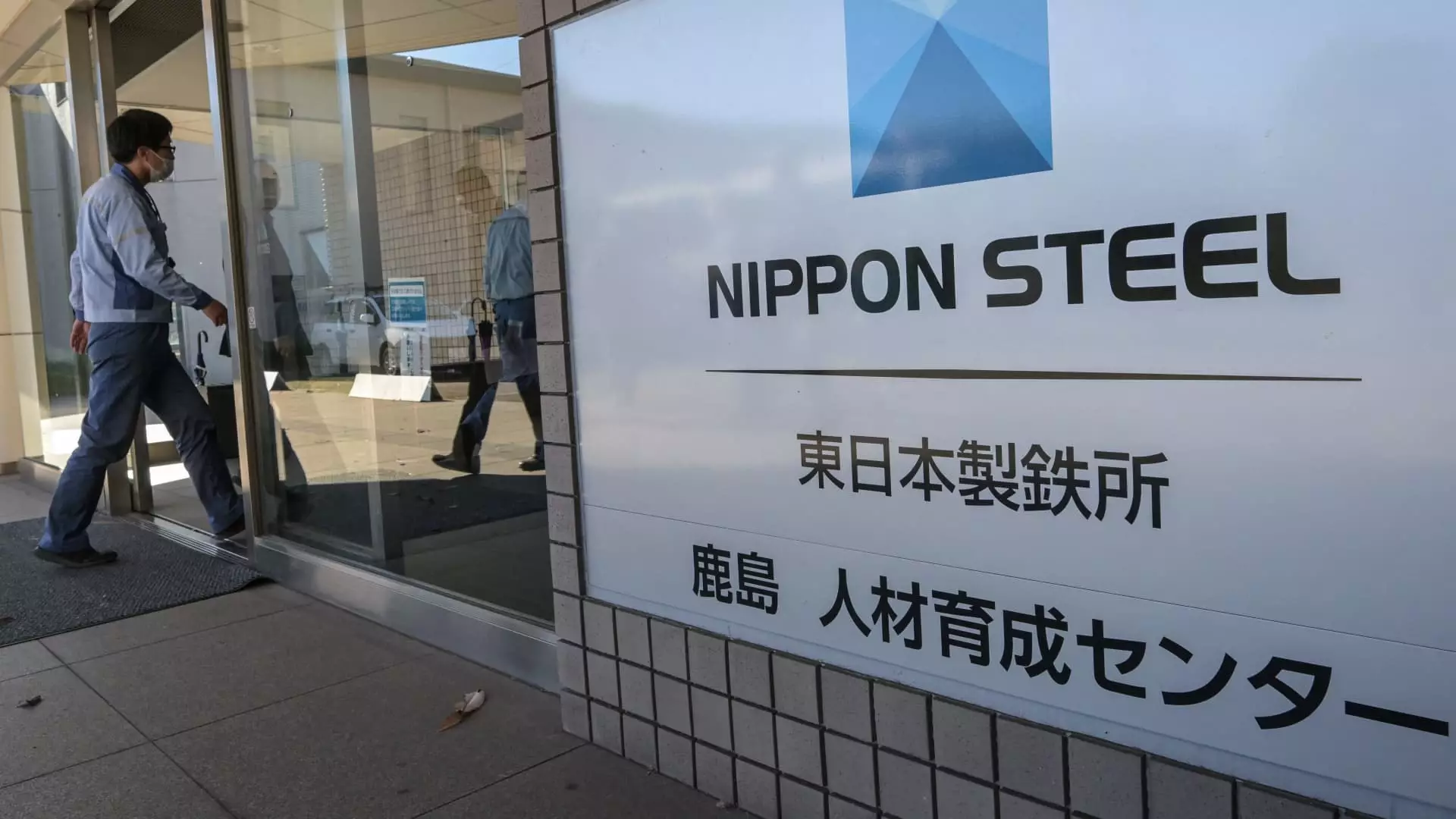In a significant move underscoring the intricate relationship between national security and business, President Joe Biden has decided to block Nippon Steel’s ambitious $14.9 billion takeover bid for U.S. Steel. Citing concerns from the Committee on Foreign Investment in the United States (CFIUS), the decision reflects the ongoing tension around foreign investments in critical industries. As reports indicate, the announcement could be made imminently, following a referral of the matter to the President after CFIUS was unable to reach a consensus on the bid.
The intrigue surrounding this takeover bid commenced on December 23, when the evaluation of Nippon Steel’s proposal landed on Biden’s desk. Herein lies a troublesome aspect of transactional politics: decisions regarding acquisitions of this magnitude often invoke layers of bureaucracy and multifaceted opinions. U.S. Steel had initially anticipated a clear path forward, relying on the backing of shareholders who expressed overwhelming support for the deal in April. This raises questions about the role of investor sentiment in regulatory decisions; while shareholders may have hoped to benefit from the acquisition, the implications for the broader economy and national security prevailed in the presidential consideration.
The evaluation from CFIUS raised alarm bells that Nippon Steel could potentially reduce the production capacity of U.S. Steel. Such a move could lead to supply shortages of steel, a commodity vital to many sectors, including defense, construction, and manufacturing. The stakes are high, as delays or shortages in these sectors could pose grave implications for U.S. national security. The government’s apprehension about foreign ownership of such a critical asset indicates a strategic shift towards protecting domestic industries. Notably, the CFIUS articulated this worry by emphasizing the likelihood of “potential reduced output,” which aligns with Biden’s focus on maintaining a resilient domestic production capacity in the steel sector.
In a bid to address these national security concerns, Nippon Steel attempted to offer several concessions. These included a promise to maintain U.S. Steel’s headquarters in Pittsburgh and a commitment to appointing American citizens to the board of directors. They even extended an offer allowing the U.S. government to veto any reductions in steel production. Despite these gestures, they were insufficient to sway the administration’s firm stance against the acquisition.
The question arises: Were the concessions merely performative? In an age where foreign ownership of critical industries is scrutinized, Nippon Steel’s willingness to cede certain powers may have been seen as an insufficient remedy to deepen-rooted worries about national safety. Furthermore, Biden’s historical opposition to the deal highlighted a pre-existing resistance that the concessions did not seem capable of overcoming.
The Political Landscape and Public Sentiment
Interestingly, this move is not solely a reflection of Biden’s administration. The political landscape has been characterized by bipartisan wariness towards foreign ownership in sectors deemed essential, particularly in a post-pandemic environment where supply chains are already fragile. Former President Donald Trump also echoed similar sentiments, taking to social media to express his disdain for foreign acquisitions of American companies, especially those with historical significance like U.S. Steel. This indicates a cross-party consensus that further complicates the national discourse surrounding foreign investments.
Moreover, the overwhelming support reported from U.S. Steel shareholders signifies a disconnect between corporate desires and governmental priorities. The emphasis on pure shareholder value often overlooks broader societal concerns, such as maintaining domestic manufacturing and securing essential supply lines.
Biden’s rejection of Nippon Steel’s takeover bid is emblematic of the evolving political and economic landscape in which national security and economic stability increasingly intersect. As the administration continues to navigate these complexities, it remains crucial to evaluate not only shareholder interests but also the implications of foreign control over American industries. The decision serves as a reminder of the critical balancing act required to safeguard national interests while fostering a functional economy. Going forward, it will be essential for both companies and policymakers to engage in dialogues that encompass the broader implications of such significant corporate maneuvers, ensuring a holistic approach to national security and economic prosperity.

Leave a Reply